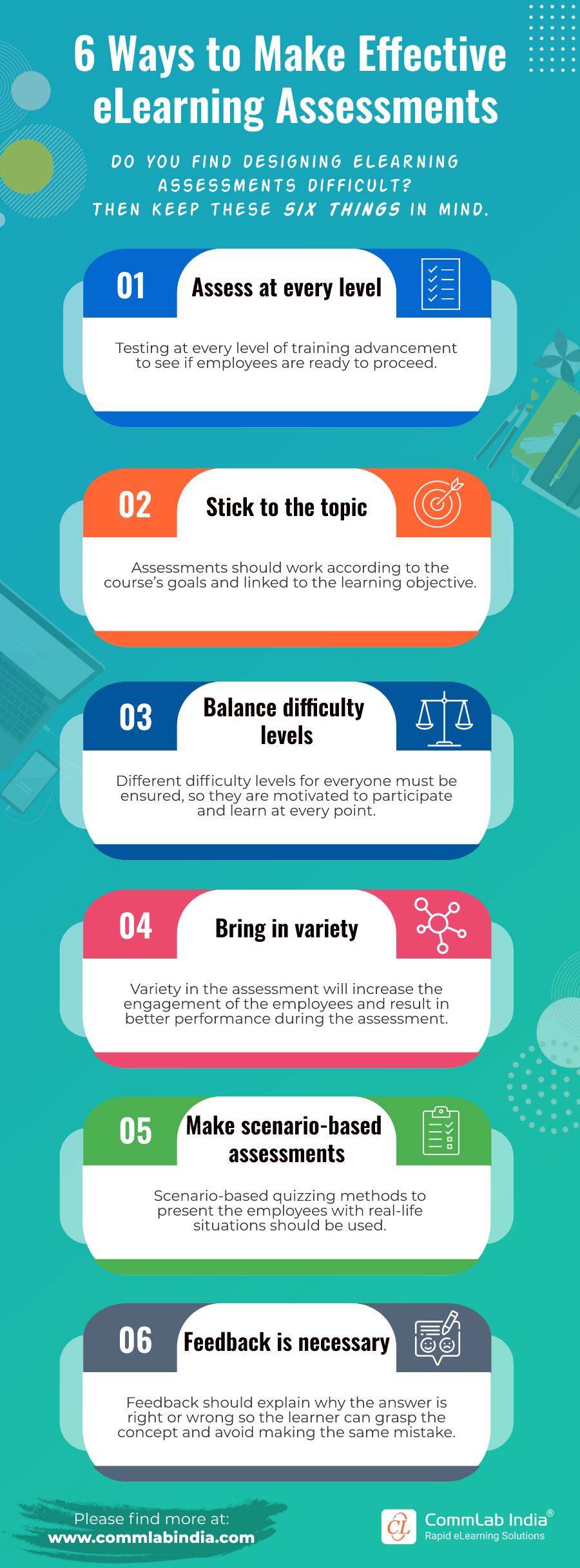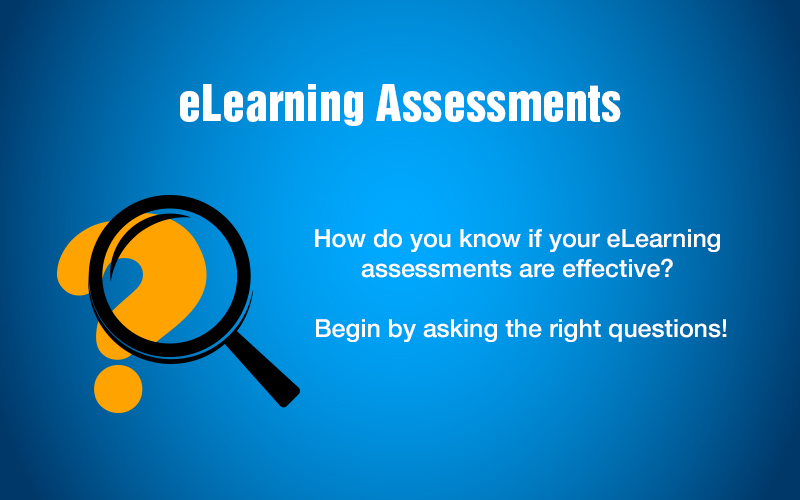6 Ways to Make Effective eLearning Assessments [Infographic]
![6 Ways to Make Effective eLearning Assessments [Infographic] 6 Ways to Make Effective eLearning Assessments [Infographic]](https://blog.commlabindia.com/hubfs/elearning-assessments-effective-ways-infographic.jpg)
Training and development have digitalized, and eLearning is an integral part of it. One of the key components of eLearning is assessments. These online assessments have transformed the way we evaluate and measure knowledge. In this blog, we'll delve into the numerous benefits of eLearning assessments and explore some ways to make effective eLearning assessments.
Benefits of eLearning Assessments
Immediate Feedback
Traditional methods often leave learners waiting for weeks to receive their results. eLearning assessments, on the other hand, provide instant feedback. Learners can immediately see where they went wrong and learn from their mistakes. This real-time feedback fosters a deeper understanding of the subject matter.
Flexibility and Convenience
eLearning assessments can be taken from anywhere, at any time. This flexibility allows learners to adapt their training schedules to their own pace and convenience, accommodating busy lifestyles and diverse learning styles.
Personalized Learning
Adaptive eLearning platforms use assessment results to tailor the learning experience. This ensures that learners receive content at an appropriate difficulty level, helping them stay engaged and motivated.
Data-Driven Insights
eLearning assessments generate valuable data on learner performance. Trainers can use this data to identify areas where learners are struggling and make informed adjustments to their training strategies.
→ Download Now: eLearning Trends 2023
Cost-Efficiency
Hosting and grading physical assessments can be costly. eLearning assessments are cost-effective, as they eliminate the need for physical infrastructure, printed materials, etc.
Global Accessibility
eLearning assessments break down geographical barriers. Learners from around the world can access the same training content and assessments, promoting inclusivity and diversity.
Sustainability
Going digital reduces paper usage and the carbon footprint associated with traditional assessments. eLearning assessments are an eco-friendlier option promoting sustainability.
Continual Learning
eLearning assessments encourage continuous learning. Rather than cramming, learners engage with the material consistently, enhancing long-term retention and understanding.
Customization
Trainers can create a wide range of assessment types, from multiple-choice quizzes to complex simulations, allowing them to tailor assessments to specific learning objectives.
Bottom Line
No doubt, eLearning assessments bring a multitude of benefits to the world of training and development. They offer flexibility, immediate feedback, data-driven insights, and much more. As the digital landscape continues to evolve, eLearning assessments are likely to play an increasingly pivotal role in shaping the future of learning, making learning more accessible, engaging, and effective for learners worldwide. While eLearning assessments are present-day preferences, explore what else is trending this year.





![Enhancing eLearning With the Power of Assessments [Infographic]](https://blog.commlabindia.com/hubfs/Imported_Blog_Media/elearning-assessments-enhance-elearning.jpg)
![Plan Your eLearning Assessments Like a Pro! [SlideShare]](https://blog.commlabindia.com/hubfs/Imported_Blog_Media/elearning-assessments-plan-slideshare.jpg)
